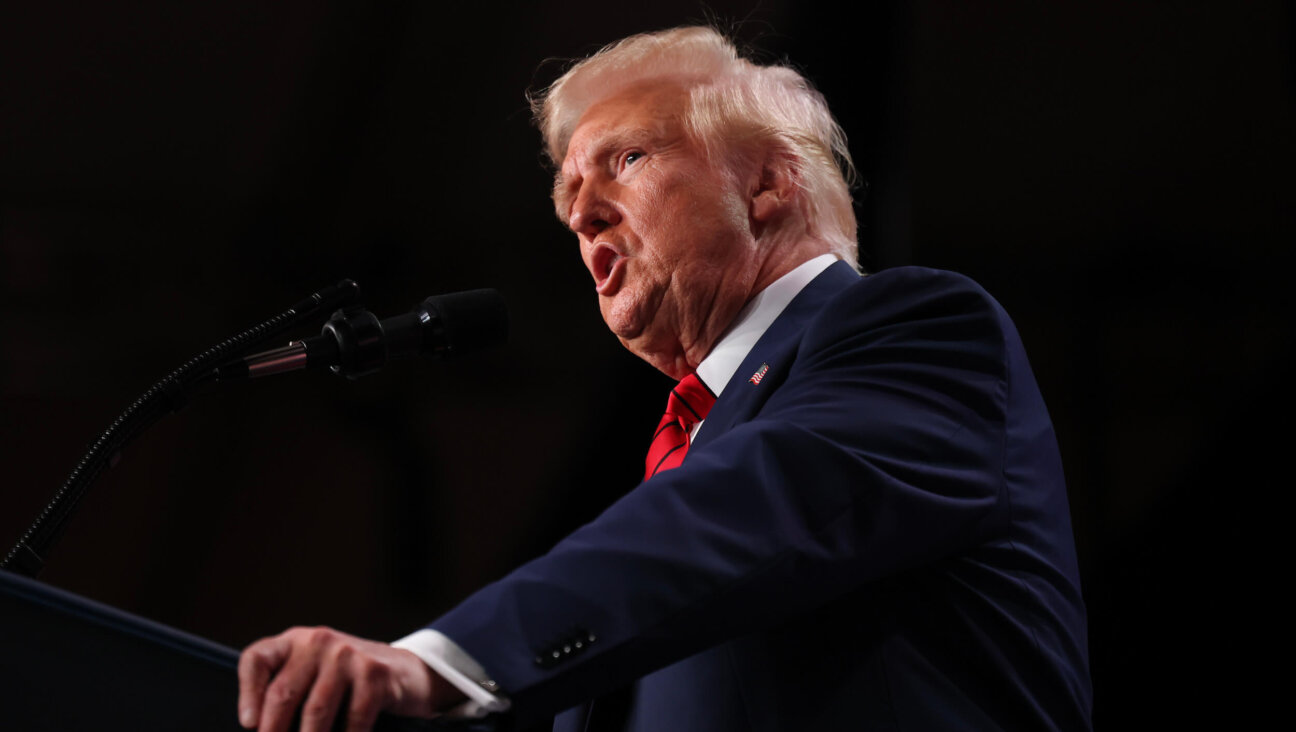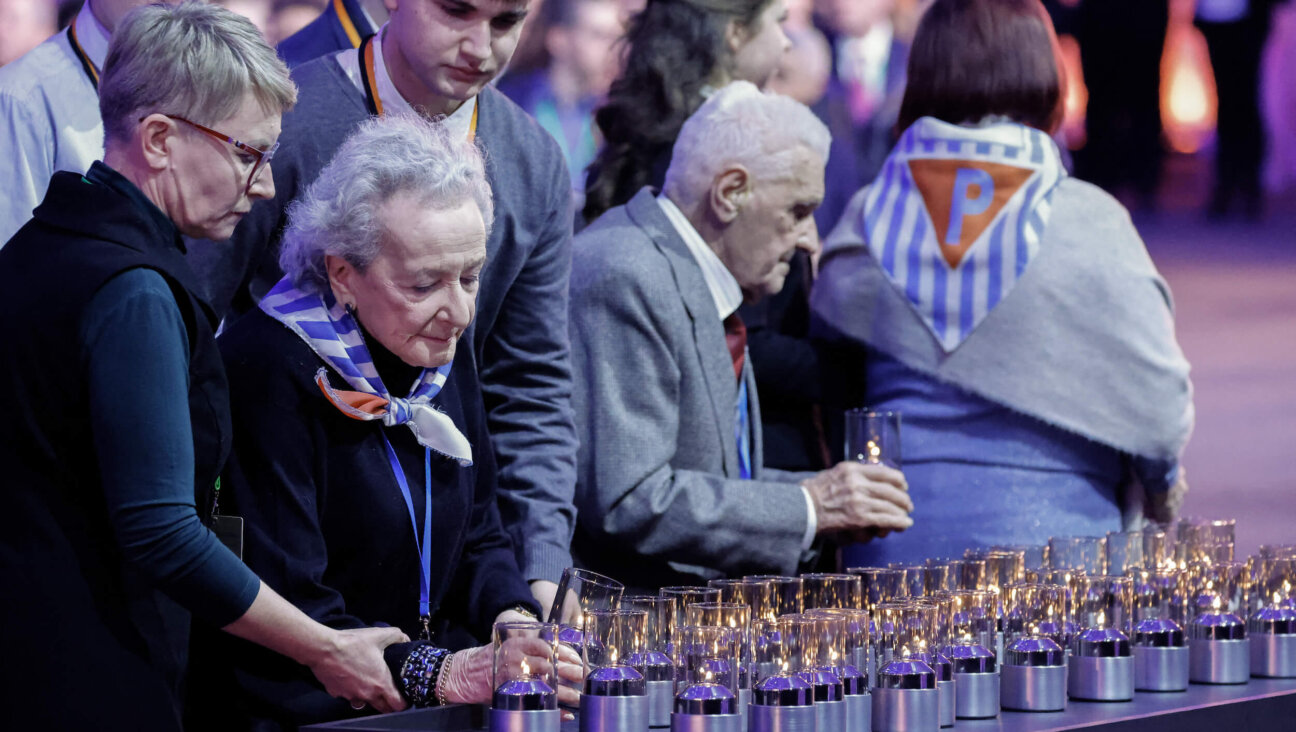Is New London Mayor Sadiq Khan Good for the Jews?

Image by Getty Images
London has elected its first Muslim mayor, Labour MP Sadiq Khan. The inevitable questions have followed: Is Khan a front for Muslim extremists or a poster boy for enlightened secular pluralism? Is he “good for the Jews”?
Fears that Khan is a closet jihadi appear groundless. Attempts by Zac Goldsmith (the Tory who lost to Khan) and David Cameron to link Khan with Islamic extremists have not held up to scrutiny and are regarded as having helped Khan more than they hurt him. Khan scathingly called out Cameron’s attacks as “straight out of the Donald Trump playbook” days before his ascension past Goldsmith, whose negative campaign against Khan came to be widely regarded as base and divisive.
Khan’s first act as Mayor of London was to attend the U.K.’s Holocaust Memorial Ceremony, just 24 hours after the last Labour mayor repeated controversial claims that Hitler was a Zionist. “Many Labour Jews voted for Sadiq Khan as Mayor of London with a heavy heart,” wrote Colin Shindler in Haaretz, referring to the growing estrangement between British Jews and the Labour Party. During the election campaign, Khan went out of his way to court the Jewish community and was the first Labour MP to denounce the anti-Semitic comments of his predecessor, Ken Livingstone. During the campaign, a kippah-clad Khan attended a Seder and met with shoppers at a kosher market. “I accept that the Labour Party in the last two elections is not the natural place where Londoners of the Jewish faith have placed their vote. So that’s why it’s really important for me to spend time understanding the issues, talking and listening,” he said.
One unavoidable sore spot for Jews regarding Khan’s record is the work he did while a human rights lawyer, prior to becoming an MP, on behalf of Louis Farrakhan. Khan fought to get the exclusion order banning him from entering Britain overturned (he was initially successful but the order was upheld on appeal). Khan has defended himself by saying that “even the worst people deserve a legal defense,” though he was technically not defending Farrakhan at the time but rather challenging the government. It is hard not to see Khan as having chosen the spotlight over principle in his dealings with Farrakhan, though there is no evidence that Khan’s views resemble those of Farrakhan.
Khan’s story is typical of a second-generation child of a minority immigrant family. He is famous for being the “son of a bus driver,” a phrase used so often in his promotional materials he began making fun of it himself. Khan, the fifth of eight children, is the son of Amanullah and Sehrun Khan, who immigrated from Pakistan before 1970. As an adolescent Khan was subject to racial taunts and hostility. He gravitated toward politics remarkably early, joining the Labour Party at age 15. The head of his school, Naz Bokhari, was the first Muslim headteacher at a U.K. secondary school, and played a key role in convincing him that “skin color or background wasn’t a barrier to making something with your life.”
Khan has consistently spoken about the importance to him of his Muslim faith. In his first speech as an MP he spoke about his father teaching him the hadiths of Mohammed, citing, in particular, the principle that “if one sees something wrong, one has the duty to try to change it.” As a human rights lawyer, Khan worked on a number of high-profile cases. Goldsmith dismissively characterized Khan’s legal career as “coaching people in suing our police.” He left his law firm somewhat abruptly in 2004, later telling the Law Gazette: “If you’re in government, you’re a legislator and you have the opportunity to make laws that can improve things for millions of people.”
Khan has repeatedly stressed that he will be a mayor for all the communities of London — it may be the most repeated phrase of his first day as Muslim mayor of the Western world’s most prominent multi-cultural metropolis. In the second key symbolic gesture of his first 24 hours, Khan held his swearing-in ceremony at Southwark Cathedral, the oldest cathedral church building in London, at a spot that formed the only entrance to the City of London across the Thames for centuries.
As for the future, the British Press is portraying Khan as positioning himself in tension with Jeremy Corbyn, whose strategies and decisions Khan has criticized repeatedly. The subtext is that Khan may be vying for the future leadership of the Labour Party. The times, they are a-changin’…and that just might be good for the Jews.
Matthew Gindin is a freelance writer and journalist in Vancouver. He blogs on spirituality and social justice at “seeking her voice” and writes for the Jewish Independent. He has also been published in Tikkun, Elephant Journal, Wisdom Pills and elsewhere.
A message from our Publisher & CEO Rachel Fishman Feddersen

I hope you appreciated this article. Before you go, I’d like to ask you to please support the Forward’s award-winning, nonprofit journalism so that we can be prepared for whatever news 2025 brings.
At a time when other newsrooms are closing or cutting back, the Forward has removed its paywall and invested additional resources to report on the ground from Israel and around the U.S. on the impact of the war, rising antisemitism and polarized discourse.
Readers like you make it all possible. Support our work by becoming a Forward Member and connect with our journalism and your community.
— Rachel Fishman Feddersen, Publisher and CEO






















